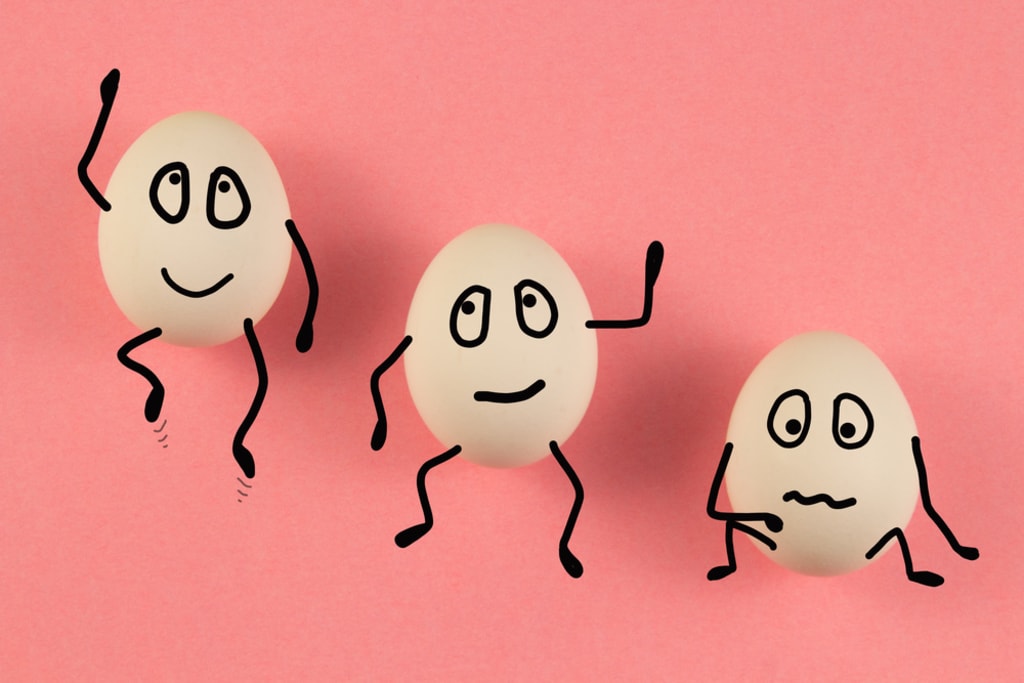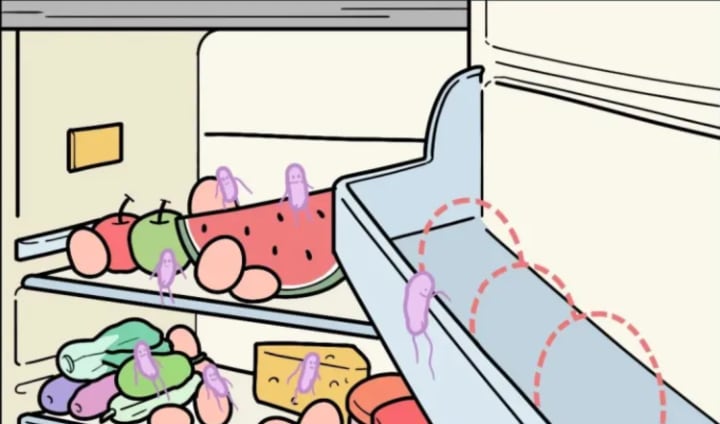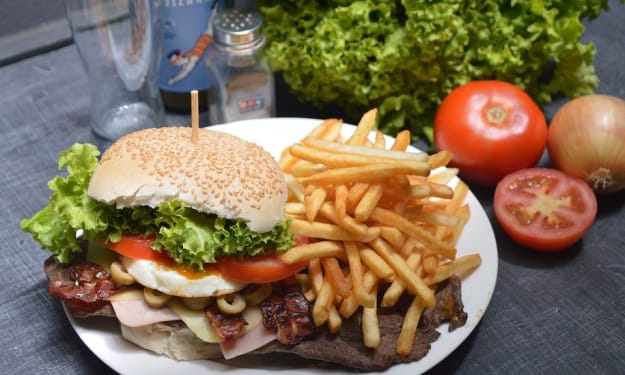What is the dirtiest thing on an egg? (Not chicken poop)
Dirtier than chicken shit may be eaten by you!

Eggs are one of the essential ingredients for many families.
From boiled eggs to poached eggs, scrambled eggs, and steamed eggs ...... eggs seem to be a universal ingredient, nutritious, delicious, and versatile!
But people with life experience will find that from time to time you will see eggshells covered with: chicken feathers fluttering in the wind, a touch of slagging mud, as well as gray and white ...... chicken.
As a food to be imported, this can make people, uncomfortable ah!
On each egg, there may be stained
A little bit of shit belongs to the "factory settings" of the egg.
After the egg is formed in the hen's body, it needs to pass through a channel called the "cloaca" to be born, which has both excretory and reproductive functions.
In other words, the eggshell, which is originally free of poop, may be covered with residual poop when it passes through the cloaca, or it may meet with the poop in the nest after it hits the ground.
But most of the eggs you see in supermarkets are quite clean, right?
Most egg factories currently just pick out dirty eggs and throw them away, leaving the ones that look clean. This means that most of the eggs are more or less covered with things that come out of the hen's body, such as residual poop. It's like a never-clean daisy, we just think it's clean.
Of course, there are still some egg factories that give their eggs a "bath": first, they wash the surface with warm water and a brush to clean the poop and other stains; then they blow dry and sterilize the surface (hot water, UV light, disinfectant, etc.); and finally, they rub in a layer of "body lotion".
This last step is very important, as it forms a cling film on the surface of the eggshell, replacing the washed-off cuticle and blocking outside microorganisms from invading through the stomata, allowing the egg to stay fresh for a longer period.
However, whether the surface is clean or not, the problem of egg hygiene may always exist.
Dirtier than
You may have eaten it
Chicken poop is disgusting to look at, but it's the problem behind it that many people overlook.
The biggest risk of eating eggs comes from the one that is invisible but present in almost all eggs - salmonella.
Salmonella is a major foodborne pathogen or a "bacterium" that makes it easy to get sick from eating, and it is widely found in a variety of environments and foods.
In our country, Salmonella is one of the main culprits of bacterial food poisoning incidents. In the United States, Salmonella causes approximately 1.35 million infections, nearly 30,000 hospitalizations, and nearly 500 deaths each year. These counted cases are just the tip of the iceberg; in fact, there are many more poisonings that go unnoticed.
The WHO's Global Burden of Foodborne Disease Estimates report estimates that nearly 1 in 10 people worldwide become ill and even die each year from eating contaminated food.
After consuming food contaminated with Salmonella, people may experience food poisoning symptoms such as abdominal pain, diarrhea, fever, nausea, and vomiting within a short period.
Although the symptoms are relatively mild in most cases, most can recover spontaneously. However, for people such as pregnant women, infants, and the elderly who are immunocompromised, the symptoms may be more complicated and severe, and even life-threatening.
What's even scarier is that Salmonella is particularly well-fed: salt-tolerant, cold-tolerant, and can survive in dry environments for weeks, in water for 3 weeks, and in feces for 2 months.
Chicken and eggs, on the other hand, are common foods that are susceptible to Salmonella contamination.
Salmonella can be present in both animal feed and the farm environment, and hens are easily infected but often do not become ill and appear healthy.
In other words, these infected hens are "asymptomatic Salmonella infections" that are difficult to detect and isolate in time.
Salmonella parasites in the reproductive and digestive tracts of hens can enter the egg directly during the egg formation process, or through the chicken's poop from the shell.
Infection of hens is a probability issue and it is impossible to test every egg for bacteria, so it is not a simple matter of assuming that "the eggs I buy must be safe".
So what can you do to eliminate salmonella and eat eggs more safely and securely?
The safe way to "open" eggs
Although salmonella is tricky, it's not like there's nothing we can do about it. The risk of infection can be greatly reduced by taking these two steps.
The first step is to store them properly.
Eggs have many "air holes" in their shells, which allow them to breathe, but also open the door to bacteria. Fortunately, there is a protective film on the outside of the eggshell, which can help to block bacteria.
Do not wash the eggs you buy, with or without poop, but keep them in the refrigerator separated from other foods (in a special bag or box for eggs).
Not washing the eggs will, on the one hand, ensure that the protective film on the shell is not damaged and that it is difficult for salmonella to take advantage of the situation. On the other hand, it ensures that salmonella is not washed everywhere on the eggshells.
By storing eggs separately from other foods, you can avoid contamination of other foods and items in your refrigerator with Salmonella, especially those that are directly in your mouth.
Also, don't forget to wash your hands after touching eggshells and egg liquids, and to clean containers and tools that have come into contact with eggs.

The second step is to cook them before eating.
Salmonella has a fatal weakness: it is afraid of heat! High-temperature heating for enough time will kill them.
So, the ultimate way to eliminate salmonella is to cook them thoroughly!
That is, heat the yolks and whites until they are completely solidified. At this point, the eggs are ready to be enjoyed.
No matter how clean the eggs look, we don't recommend eating them raw or making them semi-cooked, like a coiled egg. Because these practices do not completely kill salmonella, there is still a risk of infection.
Especially for pregnant women, infants, and the elderly, be sure to cook them before eating them.
About the Creator
Canal Gloff
You will be changed by what you love, sometimes to the point of losing your entire identity.






Comments
There are no comments for this story
Be the first to respond and start the conversation.